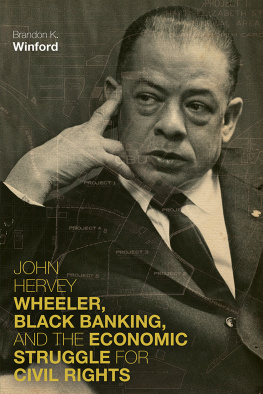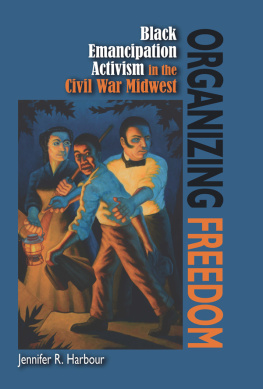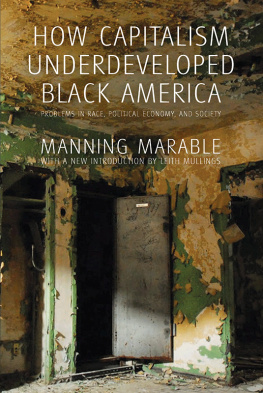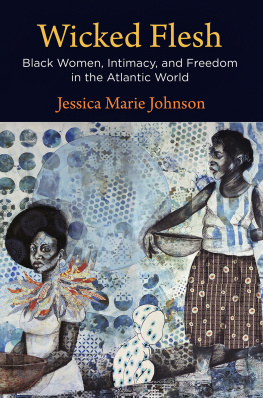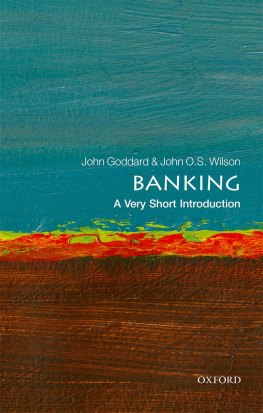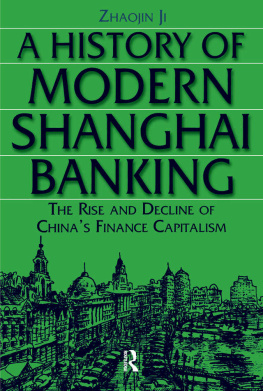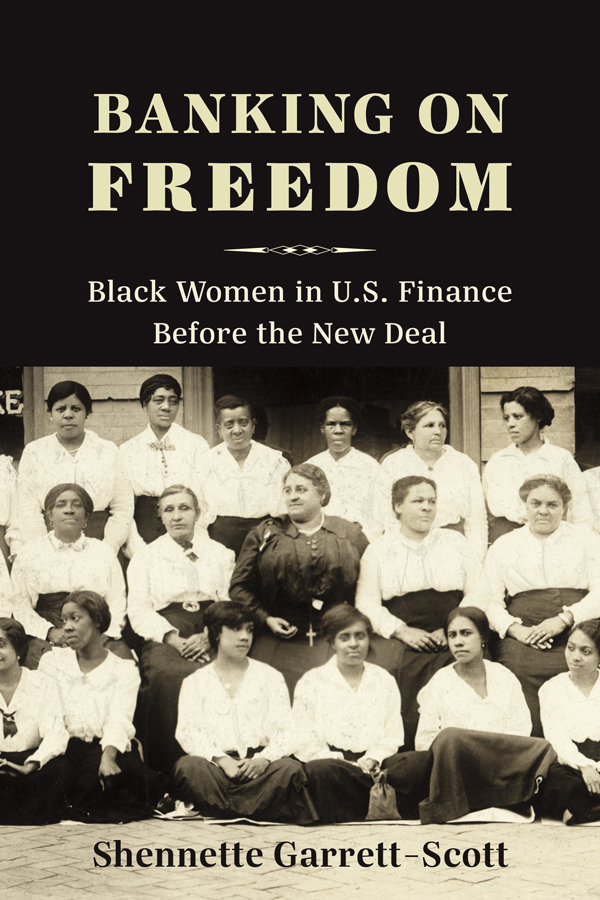Contents
Guide
Pagebreaks of the print version
Columbia Studies in the History of U.S. Capitalism
Series Editors: Devin Fergus, Louis Hyman, Bethany Moreton, and Julia Ott
Capitalism has served as an engine of growth, a source of inequality, and a catalyst for conflict in American history. While remaking our material world, capitalisms myriad forms have alteredand been shaped byour most fundamental experiences of race, gender, sexuality, nation, and citizenship. This series takes the full measure of the complexity and significance of capitalism, placing it squarely back at the center of the American experience. By drawing insight and inspiration from a range of disciplines and alloying novel methods of social and cultural analysis with the traditions of labor and business history, our authors take history from the bottom up all the way to the top.
Capital of Capital: Money, Banking, and Power in New York City , by Steven H. Jaffe and Jessica Lautin
From Head Shops to Whole Foods: The Rise and Fall of Activist Entrepreneurs , by Joshua Clark Davis
Creditworthy: A History of Credit Surveillance and Financial Identity in America , by Josh Lauer
American Capitalism: New Histories , by Sven Beckert and Christine Desan, editors
Buying Gay: How Physique Entrepreneurs Sparked a Movement , by David K. Johnson
City of Workers, City of Struggle: How Labor Movements Changed New York , edited by Joshua B. Freeman
BANKING ON FREEDOM

Black Women in U.S. Finance Before the New Deal
Shennette Garrett-Scott
Columbia University Press New York

Columbia University Press
Publishers Since 1893
New York Chichester, West Sussex
cup.columbia.edu
Copyright 2019 Shennette Garrett-Scott
All rights reserved
E-ISBN 978-0-231-54521-1
Library of Congress Cataloging-in-Publication Data
Names: Garrett-Scott, Shennette, author.
Title: Banking on freedom : black women in U.S. finance before the New Deal / Shennette Garrett-Scott.
Description: New York : Columbia University Press, [2019] | Series: Columbia studies in the history of U.S. capitalism | Includes bibliographical references and index.
Identifiers: LCCN 2018045341| ISBN 9780231183901 (cloth : alk. paper) | ISBN 9780231183918 (pbk. : alk. paper)
Subjects: LCSH: Women in financeUnited StatesHistory. | African American bankersHistory. | African American womenHistory. | Women bankersUnited StatesHistory. | African American banksHistory.
Classification: LCC HG181 .G357 2019 | DDC 332.1092/520973dc23
LC record available at https://lccn.loc.gov/2018045341
A Columbia University Press E-book.
CUP would be pleased to hear about your reading experience with this e-book at .
Cover design: Lisa Hamm
Cover image: Courtesy of the National Park Service, Maggie L Walker National Historic Site
To my wind, Malcolm, Dominique, and Malik, and my wings, Vincent
BANKING ON FREEDOM

Columbia Studies in the History of U.S. Capitalism
Contents
I owe far more than I can ever repay. I cannot hope to recount fully my myriad debts here. I would like to thank the following institutions and entities for financial support that allowed me to complete key research for this book: the Alfred Chandler Research Grant, Baker Business Library, Harvard University; the Arch Dalrymple III Department of History Faculty Research Grant and the College of Liberal Arts Summer Research Stipend, University of Mississippi; the Center for Black Business History Research Grant and the Dora Bonham Research Grant, Department of History, University of Texas; the John Hope Franklin Center Research Grant, Duke University; the Mellon Research Grant, Virginia Historical Society; the Postdoctoral Fellowship in African American Studies, Case Western Reserve University; and Shelby C. Davis Center for Historical Studies, Princeton University.
This book would not have been possible without the scraps left in the archival record, tended and cared for by patient and open-hearted archivists such as Dana Chandler at Tuskegee University, Selecia Gregory Allen at Virginia Union University, and (from years ago) Klydie Thomas at the Maggie Lena Walker National Historic Site.
At various academic posts, scholars generously poured into me, which gave me the courage to tell the stories of thousands of women whose names we may never know. I am especially indebted to Juliet Walker, Tiffany Gill, Rhonda Y. Williams, and Charles K. Ross. At Princeton, conversations with the Davis Center Fellows in our Wednesday lunches and Friday seminars as well as over dinner expanded my historical third eye. Warm thank-yous to my cohortGiovanni Ceccarelli, Jacco Dieleman, Pablo F. Gmez, Caley Horan, Vanessa Ogle, and Carl Wennerlindand the thoughtful and supportive Davis Center unofficial League of Extraordinary People: Angela Creager, Jennifer Goodman, and Jack Tannous. (Extra-special thanks to Caley for the St. Luke pin; it is one of my most treasured possessions.)
The executive board of the Association of Black Women Historians has enriched my work and spirit beyond measure. Over the years, my cohort of sister scholars has been an inspiration and model of scholarly excellence. Special thanks to LaShawn Harris, Talitha Leflouria, Ula Y. Taylor, and Francille Rusan Wilson.
I would also like to thank my editor, Bridget Flannery-McCoy, and the History of Capitalism (HOC) series editors at Columbia University Press. In 2013, when Louis Hyman asked me to send him a book proposal, I was flatteredand convinced he was bonkers. I had just started a new position, and the book seemed so far away. He was persistent, and I am glad he did not give up on me. Columbia Presss HOC series editors, Julia Ott (my writing doula!), Bethany Moreton, Devin Fergus, and Louis Hyman, must have made a pact to save their authors from every bad experience they might ever have. I appreciate your time, expertise, and enthusiasm for this project.
I am so grateful to everyone who ever shared insights on various incarnations of this work. You pushed me to become a better vessel for these womens stories. For any names I missed, charge it to my head and not my heart. I send my deepest gratitude to every member of the Delta Women Writers for reading (and rereading) various drafts and for the good times over wine and dinner across the Arkansas-Louisiana-Mississippi Delta. Thanks as well to University of Mississippi faculty and graduate students who participated in my department colloquium as well as participants in the Governing Women in Capitalism on Three Continents workshop and panel at the 2017 Berkshire Conference on the History of Women, Genders, and Sexualities. I can never repay the many kindnesses shown by Telisha Dionne Bailey, William Miller Boyd III, Deirdre Cooper Owens, Susan Grayzel, Mary Heen, Elizabeth Higginbotham, Tera Hunter, Cherisse Jones-Branch, Rebecca Marchiel, Elizabeth Payne, Jessica Wilkerson, and Brandon K. Winford.
My family has been so supportive over the years as I went to school, stopped, and went back again. I have been blessed by the three most important women in my life: my aunts Gennie Gilmore and Daisy Elder and my mother, Johnnie Brossman. Thanks for the love and support over the years to my siblings, Curtis Sanders Jr., Keisha Hall, and Mac Garrett; my father-in-law, Curtis Scott; his wife, Lynn; my mother-in-law, Alberta Jordan; and my sister-in-law, Kelly Scott. Thanks to my three little lights who inspire me to leave a positive legacy: Kyndall, Mason, and Katana. I am always far away, but you are ever in my heart. I am deeply grateful to the wonderful women who brought you into the world, Jazzmine MacMillan, Lunden Whitfield, and Kelsea Salone. I love you all.



